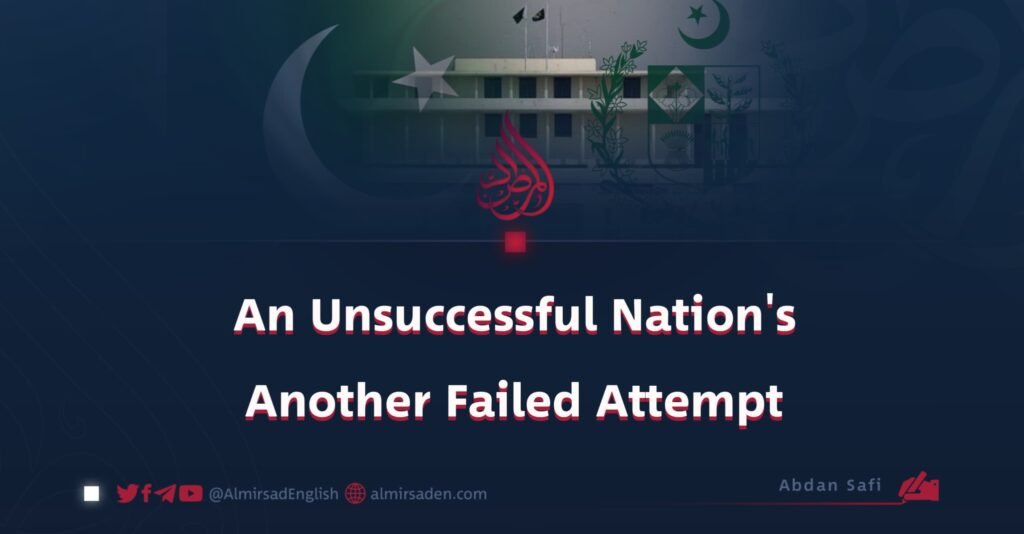Abdan Safi
Pakistan is a country whose governance has been under the control of the remnants of the East India Company since its inception, specifically the military. Furthermore, its foreign policy is formulated under the guidance of inept generals at GHQ.
This circumstance has resulted in Pakistan facing isolation and challenges on the global stage, adversely affecting its populace.
Following the events of 9/11, General Pervez Musharraf, lacking in competence, made decisions that were detrimental to Pakistan under the guise of protecting the nation. Additionally, he provided unexpected support to foreign powers, including the United States, in operations against a fellow Muslim country.
Musharraf’s ill-advised actions served as a catalyst for Pakistan’s downfall, sparking an ongoing and unending conflict within its borders that persists to this day.
Regrettably, it has become commonplace for Pakistan’s military and leadership to deflect blame onto external sources for their failures. Conversely, they are quick to claim credit for any minor successes, aiming to mislead their citizens.
In 1971, the army played a central role in the partition of Pakistan, but despite the apparent defeat in Bengal, Pakistan’s military generals have proudly written their achievements and blamed their failure on the political leadership and their enemy India.
Furthermore, following their defeat in the Kargil conflict in 1999, they refused to acknowledge their losses, absolving themselves of accountability.
In the same manner, through a single phone call, the United States entered the war in the region. The military conducted operations in various parts of the country, restored law and order, and asserted to have eradicated the terrorists and restored peace, in order to receive international credit.
However, when the true nature of their actions was exposed and the façade of success shattered, they cast blame on neighboring countries, particularly Afghanistan, alleging that Pakistan’s terrorism woes stem from across the border, labeling Afghanistan as a hub for militant groups.
If we examine the history of Pakistan, it becomes evident that involvement in the affairs of other nations and the training of terrorist organizations are practices associated with the country. Pakistan has garnered an international reputation for such activities.
Pakistan has established over a dozen jihadist organizations in Kashmir for its own political objectives and has employed them to instigate instability in India, resulting in a series of deadly attacks that continue to have a lasting impact in India.
Pakistan has neither proof nor moral right to claim that the attacks originate from Afghanistan, as the numerous active jihadist and tribal factions within Pakistan possess extensive territories from which to orchestrate the assaults.
The existence of Baloch nationalist groups in Balochistan serves as evidence that all activities are orchestrated within Pakistan itself. Despite stringent security measures, the attack on Chinese nationals within Balochistan further demonstrates that such activities originate from within Pakistan.
What relevance does the street-to-street conflict between the Pakistani army and the Tehreek-e-Taliban Pakistan have in relation to Afghanistan?
The propaganda disseminated by Pakistani government agencies is merely an attempt to deceive Pakistani citizens. They aim to portray a false narrative of stability and control in Baluchistan and Khyber Pakhtunkhwa.
The truth is that the populace opposes them as a result of governmental policies and oppression in Pakistan. This struggle for rights has evolved into a fight for freedom, surpassing the jurisdiction of Pakistani institutions, hence Pakistan’s accusation towards Afghanistan.
Following its erroneous policies in the past, Pakistan is utilizing international terrorist organizations such as Daesh to exert pressure on the Islamic Emirate of Afghanistan and employ it against the Tehreek-e-Taliban Pakistan. Pakistan is not only providing safe havens for ISIS, but also extending financial and logistical support.
The presence of ISIS centers in Khyber, Bajaur, Dir, and Balochistan under the supervision of government agencies is now an undeniable fact that cannot be overlooked.
Pakistani authorities have established a new organization, known as “Jabhat al-Ribat,” in order to disseminate propaganda against the Islamic Emirate of Afghanistan. This propaganda organization called Jhat al-Ribat, whose leader and members are unknown, was created in the cold rooms of GHQ, which is a foolhardy endeavor.
Pakistan’s propaganda campaign will not yield desired results, as truth prevails, revealing that Afghanistan is now in the hands of its rightful rulers. Alhamdulillah.
